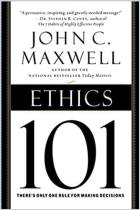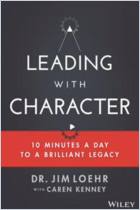加入 getAbstract 阅读摘要

加入 getAbstract 阅读摘要
G. Richard Shell
The Conscience Code
Lead with Your Values. Advance Your Career
HarperCollins Leadership, 2021
看看什么内容?
You can flourish in your career without sacrificing your values and integrity.
Recommendation
Dishonest, immoral, unethical and illegal conduct plagues businesses. In this powerful call to moral action – derived from his graduate-level course at the University of Pennsylvania’s prestigious Wharton School – professor G. Richard Shell offers 10 rules to help you stand up for your values. His examples show how breaches of integrity and accountability erode people’s moral foundations. Shell assesses the damage dishonesty does to institutions and individuals and the value honest, moral behavior brings to them.
Summary
About the Author
G. Richard Shell is chair of the Wharton School’s Legal Studies and Business Ethics Department.






















Comment on this summary